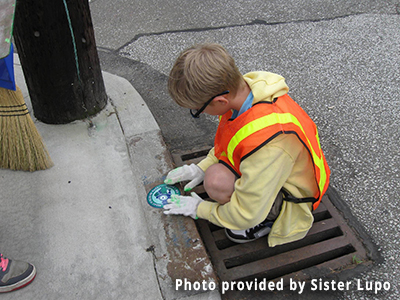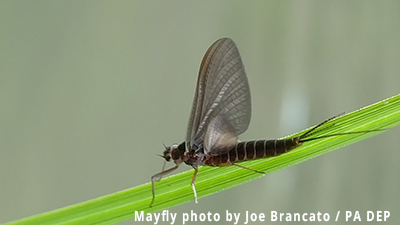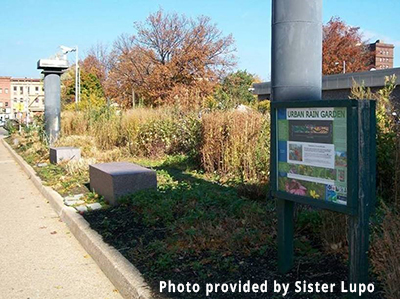
I became really interested in stormwater management about 30 years ago, while working with kids in the Seven Mile Creek Watershed in Harborcreek Township, Erie County.
Seven Mile was a prolific stream then, with a wide variety of macroinvertebrates--those neat creek organisms, like mayflies or water pennies, that are large enough to be seen with the naked eye. Kids love to explore any habitats, but especially streams. As they discover and identify the tiny creatures that live there and study their habitat and field manuals to determine what they eat, kids learn a life lesson: how dependent all creatures are on clean water.
As the years slipped by, we saw fewer macroinvertebrates. Increasingly Seven Mile became a muddy, raging waterway during storms, pulling down the sediment from its own banks.
Today, when kids explore Seven Mile with me, we don’t find a wide variety of organisms. The creek is scoured repeatedly by fast-moving water, and the macros are washed into Lake Erie.

This runoff isn’t natural, but due to human action. Increasing development in the area has meant more streets, parking lots, sidewalks, and roofs, without enough attention paid to how stormwater runs off these surfaces and affects the community and surrounding environment. This is true throughout Pennsylvania and across the country.
For decades now, I’ve been a stormwater management advocate, working around Erie to help reduce stormwater runoff and teach people that rain water needs to soak into the ground. Not only does ground infiltration ensure a healthy water table, it’s key to lessening runoff in our streams.
One of the most important messages is this: We need to change our view that this isn’t our problem or there’s nothing we can do about it.

There are many things we can do to reduce stormwater runoff and let our creeks be creeks again.
- We can install riparian buffer strips on our streambanks and the edges of our fields.
- We can reduce the amount of pavement/concrete around our homes, businesses, churches, and schools.
- We can collect runoff in rain gardens, swales, rain barrels, and downspout planter boxes.
- We can require green strips in parking lots and increase the green space in our communities.
We can take steps individually and reach out to our local governments and community organizations to act collectively. Human action created the problem, and can solve it.